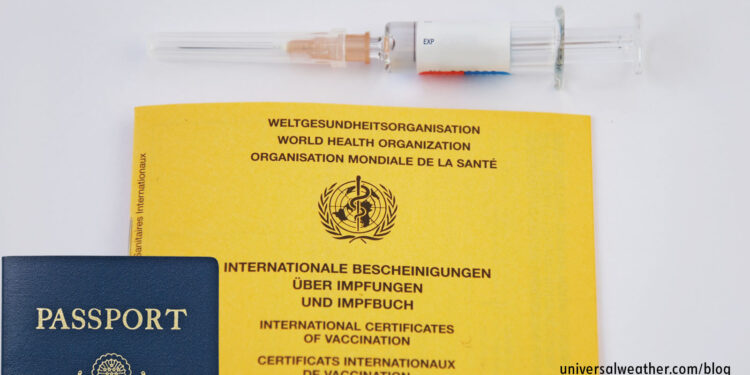Aircraft Operations to and from Endemic Countries: Key Considerations (Part 1 of 2)

This business aviation blog post is part of a series on travel to endemic countries.
With Ebola coverage all over the news, it’s more important than ever for business aircraft operators to be aware of and plan for international travel health risks. When you operate to/from regions with endemic health issues, it’s important to be aware of any relevant travel restrictions, documentation requirements, and immunization mandates.
The following is an overview of what you need to know:
1. Endemic vs. epidemic
An endemic country or region is one where a particular disease or condition is regularly found among the local people. An epidemic, on the other hand, is a disease or condition affecting many persons at the same time and spreading from person to person in a locality where the disease is not permanently prevalent. Malaria, for example, is considered endemic in certain areas whereas the recent Ebola outbreak in Western Africa is an epidemic.
2. Diseases that could impact business aviation
These include any contagious/communicable diseases such as yellow fever, dengue fever, Japanese encephalitis, and Middle East Respiratory Syndrome. Although Ebola is now considered an epidemic – and no longer endemic – in certain regions, the disease has the potential to impact international general aviation. Operators need to be aware of communicable diseases, as well as effective precautions against such diseases. This includes determining whether passengers have recently traveled to certain endemic countries and how that may impact your flight operations in the future.
3. Operator restrictions
Some regions have restrictions regarding incoming travel from endemic countries. For example if you’re coming from a country endemic for yellow fever, you may have to show proof of vaccination and/or fill out a questionnaire on landing. Each country has its own list of endemic countries, as well as restrictions that may be in place for passengers/crew members arriving from those areas. Some countries require that you disinfect your aircraft prior to arrival. This usually involves releasing a spray bottle of disinfectant in the cabin, at top of descent on arrival. Additionally, if you’re traveling to an endemic country, particularly if an epidemic is underway, you may only be permitted to stay on the ground for a limited time. In some cases only flights for humanitarian purposes may be allowed to land.
4. An example of restrictions for Italy
All operators traveling to Italy from cholera-infected locations must land at an airport with a sanitary office to undergo a sanitary inspection. These facilities are only available at Linate (LIML), Malpensa (LIMC), Fiumicino (LIRF), and Ciampino (LIRA). Advance notification/arrangement is required – five days prior for single and humanitarian flights and 30 days prior to a series of scheduled flights. When operating from countries endemic for yellow fever and/or malaria, you must present a “certificate of residual disinfection” signed by local health authorities at the location your flight originated from. The original certificate must be onboard the aircraft and presented, immediately upon arrival,with a copy forwarded to your ground handler prior to departure for Italy. If this certificate is not onboard or available, your aircraft will be immediately subject to Italian health authority disinfection procedures, and this may take up to 24 hours.
5. Top considerations for endemic countries
When traveling to/from endemic countries consider destination restrictions and ability to travel intra-country. Certain immunizations may be mandated, and in some cases special approval may be needed for travel. Yellow fever vaccination for example must be done at least 10 days prior to travel from an endemic region in order to be effective. Special travel permission may be required when operating to particular endemic regions and/or when traveling to destinations after leaving an endemic region.
Conclusion
When it comes to local health issues and/or restrictions, it’s always important to “know before you go.” Not being fully prepared for health issues, restriction, and documentation requirements at intended destination could lead to operational delays, refusal of entry into the country, or even an on-site vaccination injection at a remote airport location.
Questions?
If you have any questions about this article or would like assistance planning your next trip to/from an endemic country, contact me at christopherbarnes@univ-wea.com.
Stay tuned for Part 2, which covers tips and best practices when traveling to and from endemic countries.




